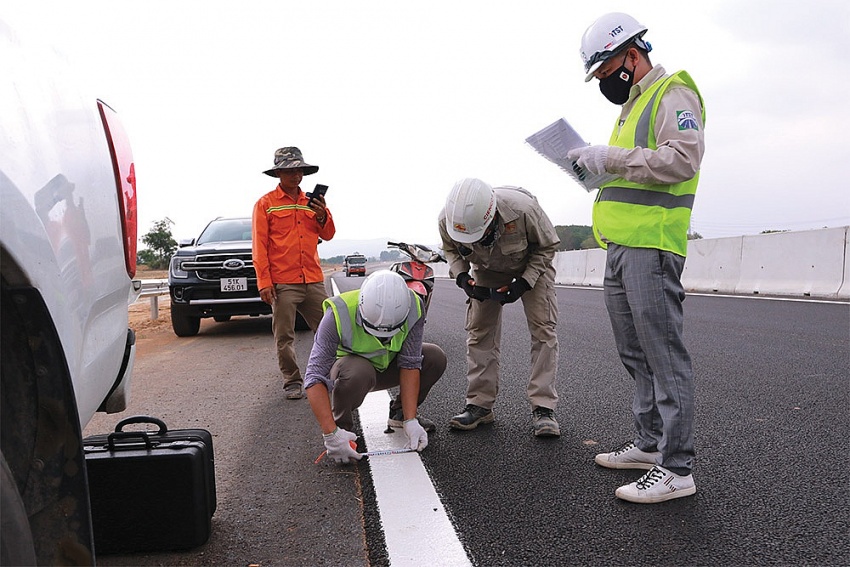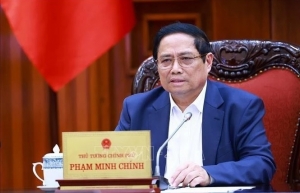Fiscal rigidity a challenge for nation’s economic aspirations
The World Bank last week issued a proposal that in Vietnam, while external demand is showing signs of recovery, domestic consumption is showing mixed signs.
 |
“The authorities have taken some measures to support the economy. However, given the strong US dollar, reduction of interest rates to support investment could intensify the pressure on the exchange rate,” the World Bank said. “Continued support of aggregate demand through capital expenditures is recommended.”
The authorities have proposed measures to fuel the economy. To support consumption, in late April, the government proposed to extend the VAT discount from June to the end of 2024 and the National Assembly is set to adopt a resolution at the end of this week, including an article covering the VAT rate.
In addition, to stimulate domestic private investment, the State Bank of Vietnam in late May asked all credit institutions to try to reduce lending rates by 1-2 per cent.
While revenue collection continued to improve, public expenditures slowed. Revenue collection improved in May, reaching $37.43 billion or 52.8 per cent of planned revenues and leading to an increase of 14.8 per cent in the first five months of 2024 as compared to the same period of last year.
Meanwhile, public expenditure came in at a slow pace, and was about $27.36 billion in the first five months of 2024, equivalent to 31 per cent of planned expenditure, only 0.5 per cent higher than the same period in 2023.
Public investment disbursement is estimated at $6.18 billion, tantamount to 22.3 per cent of the prime minister’s approved allocation and 5 per cent higher than the corresponding period of last year.
“Given limited monetary policy space, fiscal and investment spending will be key for growth in 2024. A comfortable fiscal position with a mild budget deficit and a low public debt-to-GDP ratio provides sufficient fiscal space to support growth,” said the Asian Development Bank.
Under the ADB’s calculations, a sizable amount of public investment, equivalent to $27.3 billion, has been set for disbursement this year. Together with disbursements from 2023, this additional public investment would significantly stimulate growth.
“While a gradual revival of export-led manufacturing would support foreign direct investment, accelerated public investment and improved business conditions can spur private investment in 2024,” the ADB stated.
But the ADB also noted that disbursement of public investment in Vietnam is facing a series of obstructions. For example, projects sometimes require design or budget changes even after approval and budget allocation. This can cause long interruptions before project work can start. One big impediment to timely and quality project preparation is the complexity of regulations, particularly land use planning, land acquisition, and site clearance.
“This rigidity is a crucial challenge in situations of market fluctuations. Soaring prices due to shortages of materials and inputs for production, driven by regulatory constraints, lead to higher costs, forcing contract renegotiations or the need for additional funding and approvals,” the ADB said.
Meanwhile, according to the ASEAN +3 Macroeconomic Research Office (AMRO), risks to Vietnam’s economic growth outlook are tilted towards the downside.
“The primary downside risk stems from external factors, such as slower-than-expected economic growth in the US, the EU, and China. On the domestic front, certain developers are grappling with persistent risks of subdued revenue and financial distress,” AMRO said. “Additionally, there are upside risks to consumer prices arising from extreme weather affecting food production and the depreciation of VND.”
 | PM chairs meeting on fiscal, monetary policy management Prime Minister Pham Minh Chinh chaired a meeting in Hanoi on May 16 with ministries and agencies to discuss the coordination of fiscal and monetary policies aimed at maintaining macroeconomic stability, controlling inflation and promoting growth. |
What the stars mean:
★ Poor ★ ★ Promising ★★★ Good ★★★★ Very good ★★★★★ Exceptional
Related Contents
Latest News
More News
- Banking sector targets double-digit growth (February 23, 2026 | 09:00)
- Private capital funds as cornerstone of IFC plans (February 20, 2026 | 14:38)
- Priorities for building credibility and momentum within Vietnamese IFCs (February 20, 2026 | 14:29)
- How Hong Kong can bridge critical financial centre gaps (February 20, 2026 | 14:22)
- All global experiences useful for Vietnam’s international financial hub (February 20, 2026 | 14:16)
- Raised ties reaffirm strategic trust (February 20, 2026 | 14:06)
- Sustained growth can translate into income gains (February 19, 2026 | 18:55)
- The vision to maintain a stable monetary policy (February 19, 2026 | 08:50)
- Banking sector faces data governance hurdles in AI transition (February 19, 2026 | 08:00)
- AI leading to shift in banking roles (February 18, 2026 | 19:54)

 Tag:
Tag:



















 Mobile Version
Mobile Version